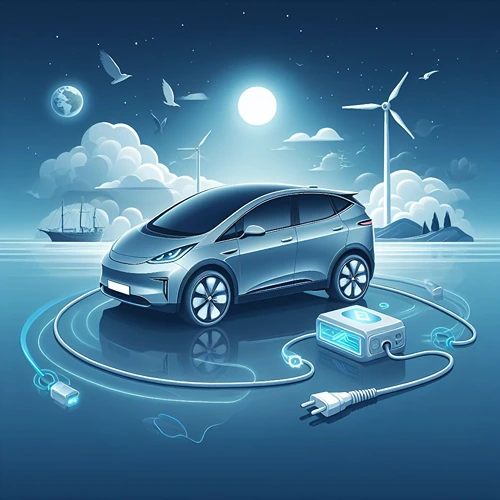Electric cars have gained significant attention in recent years as the automotive industry continues to embrace sustainable and eco-friendly technologies. While electric vehicles (EVs) offer numerous benefits, they also come with certain challenges. Let’s explore the advantages and disadvantages of electric cars.
Advantages:
1. Environmentally Friendly:
Electriccars are emissions-free, reducing air pollution and greenhouse gas emissions.. They contribute to a cleaner and healthier environment, especially in urban areas.
2. Lower Operating Costs:
Electric vehicles generally have fewer moving parts and require less maintenance than traditional internal combustion engine cars. This results in lower operating costs over the vehicle’s lifespan.
3. Reduced Dependence on Fossil Fuels:
By relying on electricity as a power source, electric cars contribute to reducing dependence on finite fossil fuels. This helps in addressing concerns related to energy security.
4. Energy Efficiency:
Electric motors are more efficient in converting energy from the power source to the wheels, making electric cars more energy-efficient than their conventional counterparts.
5. Government Incentives:
Many governments around the world provide incentives and subsidies to encourage the adoption of electric vehicles. This includes tax credits, rebates, and exemptions from certain taxes and tolls.
6. Quiet Operation:
Electric cars are generally quieter than traditional vehicles, contributing to reduced noise pollution in urban areas.
7. Innovative Technology:
Electric cars often feature cutting-edge technology, including advanced infotainment systems, autonomous driving capabilities, and innovative energy management systems.
Disadvantages:
1. Limited Range:
One of the significant challenges for electric cars is their limited driving range on a single charge. Although advancements are being made, range anxiety remains a concern for some potential buyers.
2. Charging Infrastructure:
The availability of charging stations is not as widespread as petrol stations, making it challenging for electric car owners to find convenient charging locations, particularly on long journeys.
3. Charging Time:
Charging an electric-car takes longer than filling up the gas tank.. While fast-charging stations exist, the overall charging infrastructure needs further development to match the convenience of traditional refuelling.
4. Upfront Cost:
The initial purchase price of electric cars is often higher than that of traditional vehicles. However, this cost difference is gradually decreasing as technology advances and production scales up.
5. Battery Degradation:
Over time, the performance of electric vehicle batteries may degrade, affecting the car’s overall range and efficiency. Battery replacement costs can be a concern for some owners.
6. Resource Intensive Batteries:
Manufacturing electric vehicle batteries requires rare earth metals and minerals, which can lead to environmental and ethical concerns related to mining practices.
7. Limited Model Variety:
While the number of electric vehicle models is growing, the variety still lags behind traditional vehicles. Consumers may find limited options in certain vehicle categories.
In conclusion, electric cars offer a cleaner and more sustainable alternative to traditional vehicles. However, challenges related to range, charging infrastructure, and upfront costs need to be addressed for widespread adoption. As technology continues to evolve, it is likely that many of the current disadvantages will be mitigated, making electric cars an increasingly viable and attractive option for consumers.




